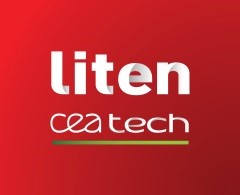
The French Alternative Energies and Atomic Energy Commission (CEA) is a Research Technological Organization active in four main areas: low-carbon energies, defense and security, information technologies and health technologies. CEA has a long experience in the development of innovative technologies, for energy storage such Li-ion batteries and fuel cells. CEA has worked in the field of Li-ion batteries for 20 years, from materials synthesis, to the elaboration of electrodes and membranes, as well as the assembling of prototypes (with on-demand size and capacity, electrochemical testing), and developed a large battery platform from material to pack assembly. This experience enables CEA to work on the next battery generation and particularly on lithium metal technologies.
CEA is the coordinator of ALIM project, being also involved in the process development phase for the production of extra-thin lithium electrodes and evaluation in Li/S prototype series.
https://liten.cea.fr/cea-tech/liten/Pages/Accueil.aspx

Bühler Redex is an SME with over 100 years' experience in the rolling of metallic strip. As part of the Redex Group, Bühler Redex has a strong emphasis on innovation with significant annual expenditure on research and development. Being a specialist in specific niche markets has enabled Bühler Redex to acquire in-depth knowledge of rolling processes. This knowledge, combined with engineering expertise and innovative ideas, will allow Bühler Redex to play a key part in the consortium.
As an expert in metal rolling, Buhler Redex is responsible for the supply of lithium rolling equipment for ALIM project, and is developing a process for the production of extra-thin lithium metal foils together with CEA and BlueSolutions.
http://www.redex-group.com/

BlueSolutions is the leader in the production of lithium metal batteries. As it diversifies from its roots in paper and ultrathin plastic-film manufacturing, the Bolloré Group has moved into the production of complete electrical components for capacitors and now controls over one-third of the global market. Building on this expertise and after 20 years of research and development, the Group has successfully introduced batteries and electricity storage solutions uniquely based on Lithium Metal Polymer (LMP®) technology. These batteries are used in mobile applications, such as electric vehicles, but also in stationary applications including electricity storage for individuals, companies and local authorities, all developed and marketed by other Group entities brought together within BlueApplications. Today, BlueSolutions has a team of more than 300 researchers, engineers and technicians who manufacture these innovative batteries at two production sites located in France (Brittany) and Canada.
In the frame of ALIM, BlueSolutions is involved in the process development phase for the production of extra-thin lithium electrodes. As a cell manufacturer, BlueSolution is also responsible for the validation of produced extra-thin lithium electrodes into Lithium Metal Polymer (LMP®) cells.
https://www.blue-solutions.com/

Uppsala university is a large institution with 41 000 students and 6 500 employees. It is a comprehensive university in the sense that it has nine faculties ranging from humanities and social sciences, medicine and pharmacy to science and technology. Uppsala university has during the last number of years, with only a few exceptions, been placed among the 100 best universities in the world in the three largest international rankings. Further, Uppsala university has eight Nobel Prize laureates and is associated with numerous prominent academics, such as Ångström, Linnaeus and Celsius. The Ångström Advanced Battery Centre (ÅABC) at Uppsala university is the leading Nordic group in battery research, electrochemistry, surface physics, computation modelling and x-ray photoelectron spectroscopy (XPS). The research activities in the group include variety of scientific approaches from the fundamental study of chemical and electrochemical reaction occurring in rechargeable batteries to optimization and improvement of commercial lithium cells.
As an expert in surface characterization techniques, Uppsala University is responsible for the validation and quality control of extra-thin lithium metal electrodes that will be produced during ALIM project.
http://www.kemi.uu.se/research/structural-chemistry